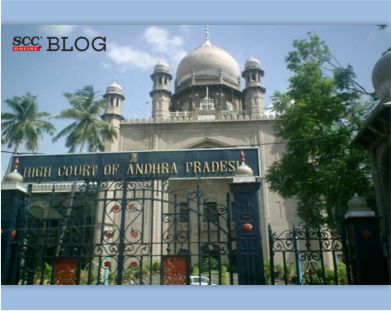Andhra Pradesh High Court: While dealing with the revision petition under Article 227 of the Constitution of India, the bench of B.S. Bhanumathi, J., held that the suit was barred by limitation and accordingly rejected it. The petition was preferred against the order passed in 2017 by the Additional Senior Civil Judge, Kadapa, whereby, the defendant had prayed to reject the plaint under Order VII Rule 11(d) of Code of Civil Procedure, 1908 which was dismissed.
Respondent had filed a suit in 2012 seeking the cancellation of gift deed and declare it null and void. The question on maintainability of the suit arose stating that the respondents should have filed the suit for declaration of title, coupled with cancellation of the gift deed. Thus, the petitioner denied the title of the respondent.
Article 58 of the Limitation Act, 1963 states that the suit for declaration of title shall be filed within three years of right to sue accrues, making the said relief barred by limitation.
Similarly, Article 59 of the Limitation Act, 1963 states that the relief of cancellation of gift deed shall be filed within three years, making the said relief barred by limitation.
The issue which arose before the Court was that:
-
Whether the suit was barred by law of limitation?
-
Whether the issue of limitation would remain a mixed question of law and fact, if the timelines are not disputed by the parties?
The petitioner contends that it only remains a question of law. However, the respondents asserted that it’s a mixed question of law and fact.
The Court stated that the question of limitation may be pure question of law or a mixed question of fact and law. However, it is a settled law that the averments in the suit and the contents of the documents filed along with the plaint can be looked into for the purpose of examining whether the suit is barred by any law. There was no requirement for trial for examining the same.
The Court further stated that when the suit was filed earlier, whole cause of action was based on the very same gift deed. However, in the subsequent suit, some more facts were pleaded by even changing the version regarding the mode of succession of the subject property.
The Court said that the crux of the relief claimed in the earlier suit and in the present suit were identical. Earlier, they sought for cancellation of the gift deed and now, they seek declaration that the gift deed is null and void.
The Court noticed that the parties discerned the weaknesses in the earlier suit for not being able to bring forth all the facts which were now additionally pleaded. To conquer such defects and the limitation period, the prayer so framed by the petitioner to overcome the legal hurdle was achieved by clever drafting.
The Court asserted that if it’s a case of cancellation of gift deed, the suit falls within Article 59 of the Limitation Act, 1963 and if it is a declaratory relief, it falls within Article 58 of the Limitation Act, 1963. Therefore, when a case falls under any specific provision of law, their residuary clauses cannot be resorted to and the parties cannot seek shelter under Article 113 of the Limitation Act, 1963 which is a residuary provision and claim that the suit is to be decided after trial.
The Court concluded that the bare reading of the suit proves that the suit is barred by limitation and is liable to be set aside.
[Sanapureddy Madhava Reddy v. Pallemaneni alias Palleneni Venkata Raja, 2022 SCC OnLine AP 2909, decided on 22-09-2022]
Advocates who appeared in this case :
For the Petitioner- Advocate N. Harinath;
Advocate Varun Byreddy;
For the Respondent- Advocate O. Manoher Reddy.







